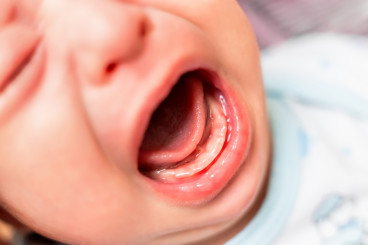Mouthguard
is a dental device designed to cover and protect the teeth and gums from injury during activities that pose a risk of dental trauma. It is typically made from a soft, flexible material that can absorb shock and cushion the impact of blows to the face. Mouthguards are commonly used in contact sports, such as football, boxing, and hockey, as well as in recreational activities like skateboarding and cycling. They can also be prescribed for patients with specific dental concerns, such as bruxism (teeth grinding) or temporomandibular joint disorders (TMJ).
Types of Mouthguards
There are several types of mouthguards, each tailored to meet different needs:
Stock Mouthguards: These are pre-formed and ready to wear, available in various sizes. They are inexpensive and can be found in sporting goods stores. However, they may not fit well, which can affect comfort and protection.
Boil-and-Bite Mouthguards: These are made from thermoplastic material. They can be softened in hot water and then molded to the shape of the teeth by biting down on them. This type offers a better fit than stock mouthguards but may still lack the precision of custom-made options.
Custom-Fitted Mouthguards: These are created by dental professionals based on a mold of the individual’s teeth. Custom mouthguards provide the best fit, comfort, and protection, as they are specifically designed for the wearer’s dental anatomy.
Night Guards: A specific type of mouthguard used primarily during sleep to prevent teeth grinding (bruxism). These guards are custom-made to fit the individual’s bite and help alleviate jaw pain and protect teeth from wear.
Importance of Mouthguards
The primary function of a mouthguard is to protect the teeth, gums, and jaw from injuries. Dental trauma can result in broken or knocked-out teeth, damage to the gums, and fractures of the jawbone. Mouthguards act as a barrier, absorbing and distributing the force of impact, thereby reducing the risk of such injuries.
In addition to physical protection, mouthguards can also play a role in preventing concussions. By cushioning the blow to the jaw, they can help stabilize the head and neck, limiting the risk of head injuries during contact sports.
Bruxism and TMJ Disorders
Bruxism is a condition characterized by the involuntary grinding or clenching of teeth, often occurring during sleep or stressful situations. This can lead to significant dental problems, including worn-down teeth, increased sensitivity, and jaw pain. A night guard can help alleviate these symptoms by creating a protective barrier between the upper and lower teeth.
Temporomandibular joint disorders (TMJ) involve pain and dysfunction in the jaw joint and surrounding muscles. Mouthguards can help reduce strain on the jaw by promoting a more relaxed position during sleep or while participating in sports.
Selecting the Right Mouthguard
Choosing the appropriate mouthguard depends on various factors, including the intended use (sports, nightly wear), level of comfort, and specific dental concerns. Consulting with a dental professional is essential to determine the most suitable option. Custom-fitted mouthguards are often recommended for those with specific needs, as they provide the best fit and protection.
Care and Maintenance
Proper care and maintenance of mouthguards are crucial for ensuring longevity and hygiene. Here are some tips for maintaining a mouthguard:
Cleaning: Rinse the mouthguard with cold water before and after each use. It can also be gently brushed with a toothbrush and mild soap. Avoid using hot water, as it can distort the material.
Storage: Store the mouthguard in a ventilated case to prevent bacteria growth. Avoid leaving it in direct sunlight or in a hot vehicle, as heat can warp the material.
Regular Checks: Periodically inspect the mouthguard for signs of wear or damage. If it becomes cracked, worn, or no longer fits properly, it should be replaced.
Conclusion
Mouthguards are essential dental devices that provide protection against dental injuries and can mitigate issues related to bruxism and TMJ disorders. With various types available, selecting the right mouthguard is critical for ensuring maximum comfort and safety. Consulting a dental professional can help individuals make informed decisions tailored to their specific needs.
Explore Dr. BestPrice for affordable dental treatments and protect your smile!



